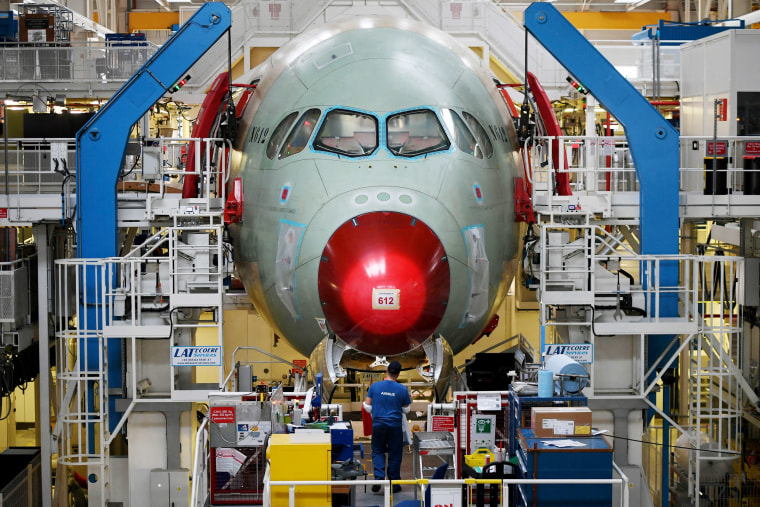
FAA Warns: Boeing and Airbus May Have Used Fake Titanium in Planes
Boeing and Airbus may have used ‘counterfeit’ titanium in planes, the Federal Aviation Administration (FAA) has recently acknowledged. This revelation has raised concerns among aviation industry experts and regulators, prompting closer inspection and potential enforcement actions.
Titanium is a crucial material used in the construction of aircraft due to its high strength-to-weight ratio, corrosion resistance, and ability to withstand high temperatures. It is commonly utilized in critical components such as airframe structures, landing gear, and engine parts. The quality and integrity of titanium used in aircraft manufacturing are paramount to ensure the safety and reliability of the planes.
The FAA’s warning about possible counterfeit titanium being incorporated into Boeing and Airbus planes has significant implications for aviation safety. Counterfeit materials pose a serious risk as they may not meet the stringent quality standards and specifications required for aerospace applications. Substandard titanium could compromise the structural integrity of the aircraft, leading to potential in-flight failures or accidents.
Manufacturers like Boeing and Airbus are held to strict quality control standards to ensure the safety of their products. The use of counterfeit materials not only violates these standards but also undermines the trust and credibility of the entire aviation industry. It is essential for aircraft manufacturers to thoroughly vet their supply chains and sources of raw materials to prevent the introduction of subpar or fraudulent components.
The discovery of potential counterfeit titanium in Boeing and Airbus planes underscores the importance of robust regulatory oversight and enforcement mechanisms. The FAA plays a crucial role in ensuring compliance with safety regulations and standards within the aviation industry. By identifying and addressing issues related to counterfeit materials, the FAA can help safeguard the airworthiness of commercial aircraft and protect the traveling public.
In response to the FAA’s warning, Boeing and Airbus are likely to conduct thorough inspections and investigations to determine the extent of the issue and mitigate any potential risks. They may also implement stricter supply chain controls and quality assurance measures to prevent the use of counterfeit materials in the future. Collaboration between manufacturers, regulators, and industry stakeholders is crucial to address this issue effectively and uphold the highest standards of safety in aviation.
Overall, the revelation of possible counterfeit titanium in Boeing and Airbus planes serves as a stark reminder of the importance of quality control and oversight in aircraft manufacturing. Ensuring the integrity of materials used in aircraft construction is essential to maintaining the safety and reliability of commercial aviation. By addressing this issue proactively and transparently, the aviation industry can strengthen its commitment to excellence and safety for all passengers and crew.